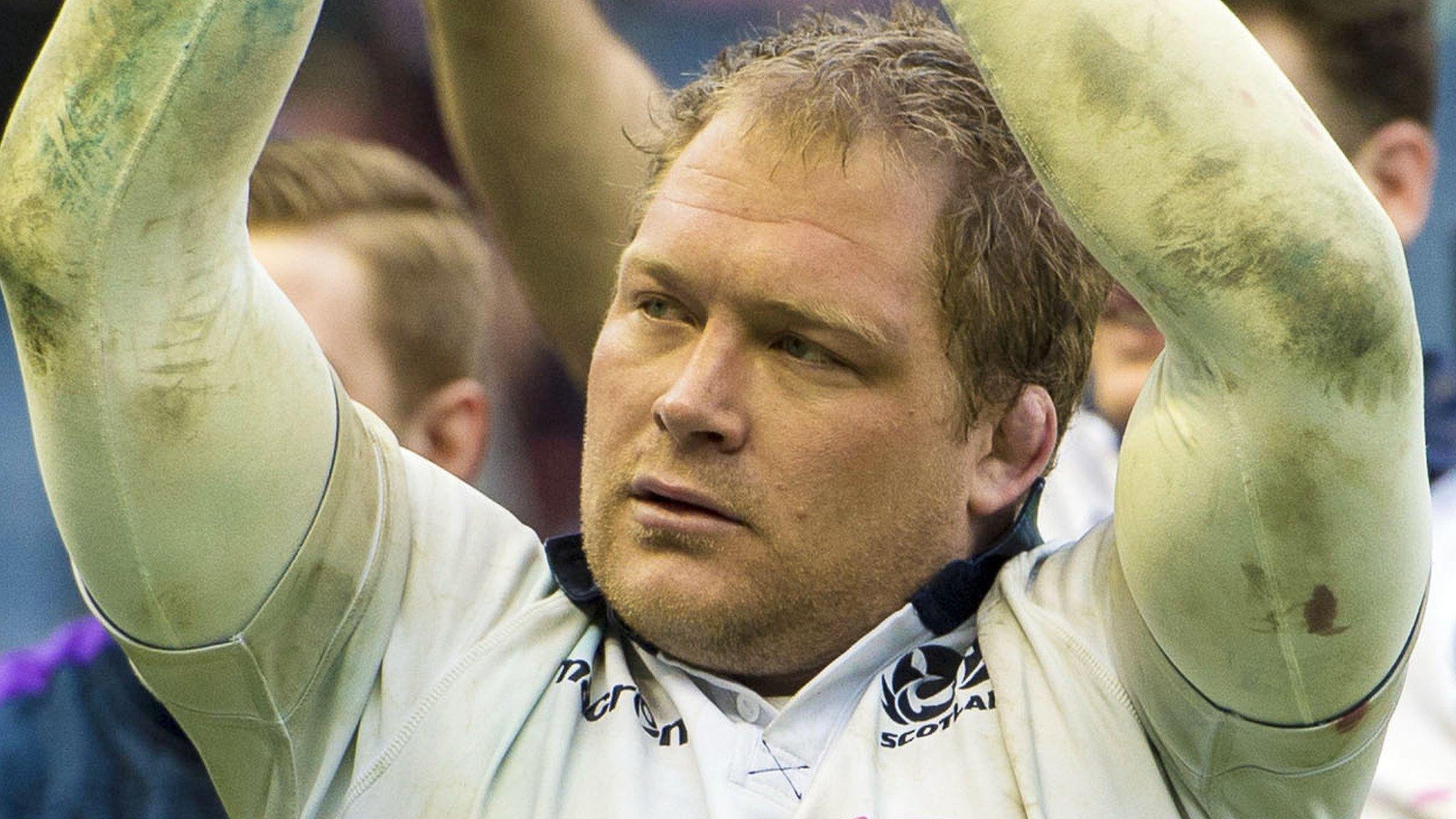Vern Cotter: Scotland coach talks France, fishing & his final Six Nations
- Published
- comments
'People would take the mickey out of Scotland - it upset me'
The old footage begins with a large man in a blue tracksuit walking across a pitch and casually kicking a rugby ball out of his road.
It's 1997 and ID7 television are filming at Dunkirk rugby club in northern France. Their subject is in his mid-30s, has a full head of hair and is strangely familiar. He's not French, but he's fluent. Only when the cameraman asks him to say his name does the penny drop.
"Je m'appelle Vernon Anthony Cotter."
For four and a half minutes he doesn't miss a beat - and why would he? Cotter had been in the country for years by then. Four seasons playing in the back row with Rumilly in the south-east, two years with Lourdes in the foothills of the Pyrenees, a year with Saint-Junien in west-central France and he would soon kick on for the small southern village of Castelnau-Riviere-Basse, where he played and coached while briefly contemplating a new life as a winemaker.

Cotter has a higher win percentage than his four immediate predecessors
Cotter is now sitting in Murrayfield talking about the past, the present, the future. The New Zealander has been Scotland coach for 31 Test matches - 16 victories, 15 defeats, nine of which were by seven points or less, five of them by three or less.
He's given a first cap to 26 players. Eighteen of the squad he has just named for the Six Nations have appeared on his watch.
He has just five more Tests before France reclaims him. Montpellier await. Time for reflection, then. Time to remember where Cotter came from and where he has taken Scotland in his two and a half eventful years.
'Right, boys. Tactics - run up and punch them'
Cotter is big into culture. Rugby culture. He learned about it first as a player with Counties in New Zealand but a lot of his knowledge came in those early years in France. "I used to think I was a reasonably physical player, but I was a baby," he says.
"I learned a lot about character and defending the jersey. You couldn't help but get swept away. The French flair - I used to laugh at that. It wasn't true. Overlaps were created because two forward packs were generally having a good whack at each other."
He tells a story about a derby match from the mid-90s, his own Lourdes team versus Pau. No love lost between them. In their previous meeting there'd been "scuffles" and Lourdes had come off second best.
"Our players were doing cartwheels going on to the paddock," Cotter recounts. "The coach said, 'Right boys, tactics for the day. The first five [eighth] kick it straight into the stand and we run up and punch them.' That's what happened. I had somebody who had given me a gentle tickle in the away game and I managed to line him up.
"There was an all-out brawl, but no penalty. We had a scrum in midfield and our locks came through and caressed the opposition front row a little bit with their hands. A couple of them needed treatment and we scored a try from there. It was an insight.

The eyes have it: Cotter's 'yeux de glace' - eyes of ice - became a familiar sight on the touchline
"It wasn't just a game. I enjoyed the fact that you were playing for your town and your colours. They could be absolute psychopaths on the paddock and gentlemen afterwards."
Years later, while coaching at Clermont, Cotter was given a nickname - les yeux de glace ('eyes of ice'). Years after that, in Scotland, he was christened Stern Vern. To understand what makes him tick, the period of his life in a country where he's already done 17 years, and where he will soon return for another three, is important.
'People would take the mickey out of Scotland'
Eight seasons at Clermont turned Cotter into one of the hottest coaching tickets in world rugby. The season before he took over, the club finished a poor eighth in the French championship. In his first year - and for the three years that followed - they made the final.
In 2010 they won the first league title in their history. Cotter - with his great friend Joe Schmidt as assistant coach - had become immortal in the French game.
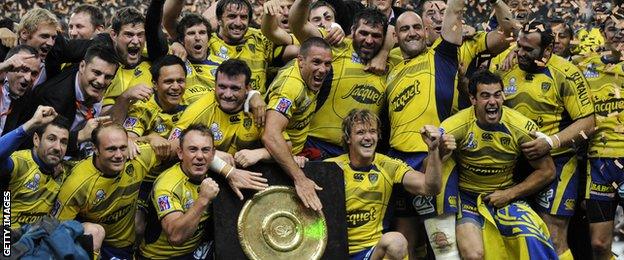
Cotter's Clermont lost three Top 14 finals in a row before breaking their duck in 2010
Clermont were never out of the top four on Cotter's watch. Then, the move to Scotland. Not a lot of people in France could understand why he did it. Going to New Zealand, they would have understood. England, they could get. Ireland, perhaps. But Scotland?
"It's something that I didn't have to do, it's something that we wanted to do as a family," he explains.
"One of the key motivating factors was that people [in France] would take the mickey out of Scotland and its rugby. It sort of upset me. I was defending the underdog.
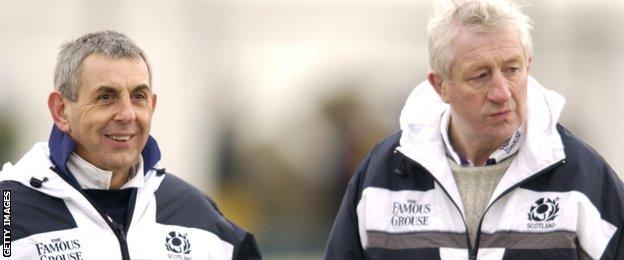
Cotter was inspired by former coaches Ian McGeechan and Jim Telfer in the way he coached the national side
"Before the Six Nations, everybody would take a sweepstake and Scotland was always last pick.
"Look, I remember the 1990s. I remember Scotland coming to New Zealand [in the summer of 1990] and they should have beaten the All Blacks. We weren't inventing the game, Scotland were doing it. When we first came together as a squad we looked at some footage of those days. They were brave, confident warriors.
"Trying to bring that back to Scotland was one of the key things. They [Jim Telfer and Ian McGeechan, the coaches of the era] were ahead of their time. Any comparison to those two great men is very nice. I would take inspiration from what they did. The game has moved on but some of the essential things they were coaching are still relevant, especially to the Scottish psyche.
"Scotland has a proud history. It's a humble country and it's a place you can become attached to very quickly."
'Joe's always the one smiling - I'd like it to stop'
In Cotter's first Six Nations, in 2015, Scotland got whitewashed, Wooden-spooned and, at times, embarrassed. Last season brought progression. The brilliance and pain of the near-miss against Australia in the World Cup, the home win against France in the Six Nations, the fact - incredible as it seems - that 2016 was the first time in the 17-year history of the competition that Scotland managed to score more points than they conceded, and hit double figures for tries scored.
Six Nations Highlights: Scotland 29-18 France
Scotland have become an exciting team. More than at any point since last winning the championship under Telfer in 1999, they're posing a threat to the big nations.
"The principal foundations are mindset and skill-set," says Cotter. "It was about creating clarity.
"The other thing is leadership, creating a leadership group so that they determine behaviour and standards because it's always much easier when you have a group that can think on its feet, that's autonomous. I think that's where we're getting.
"You've got a team that's experienced some good things and some bad things. We've become aware of what we can do. Winning is the most important thing. So how do we win? We go through a painful process of learning how to win.
"There's been improvement. Would we have liked quicker improvement? Yeah, we probably would. Would we have liked to nail some of those close games? Yes. But we've used them as benchmarks."
2016 Highlights: Ireland 35-25 Scotland
On the opening day of the Six Nations, Ireland come to Edinburgh. "We played them at the end of the competition in the last two years and their strength in depth showed through," Cotter recalls.
"We have more depth now to stay a bit more robust until the end. I'd like to think this game will be closer than those two.
"It's a really big challenge for our guys. Joe [Schmidt, Ireland coach] is a really good friend and we'll probably have a beer afterwards. Unfortunately, he's always the one with the smile on his face - and I'd like it to stop. I'd like to get one back on him."
Beyond that, it's a trip to France, then a visit from Wales, then a journey down to England. Scotland have moved forward, but that's no guarantee of victories in the coming weeks.
"We know that these teams are very good," he insists. "When they see us on the fixture list they know they're going in as favourites, very confident that they'll beat us. It's our job to try to surprise them somehow, to have something that will take them away from the comfort zone and create errors in their game that we can exploit."
Five more games and then he's away. It's not the way he planned it. It's just the way it is, he says.
'It's been a privilege - the whole thing'
When the news broke that this was going to be Cotter's final Six Nations, an audible gasp could have been heard around Scottish rugby. There had been little hint of it, no suggestion his time was coming to an end.
He would have preferred to stay on, but Gregor Townsend was ready for an elevation and there was only one way that was going to happen.
Will he miss it? "Undoubtedly, but we'll come back on holiday," he says. "You never know, you might find that Glasgow are in Montpellier's pool next year in European rugby.
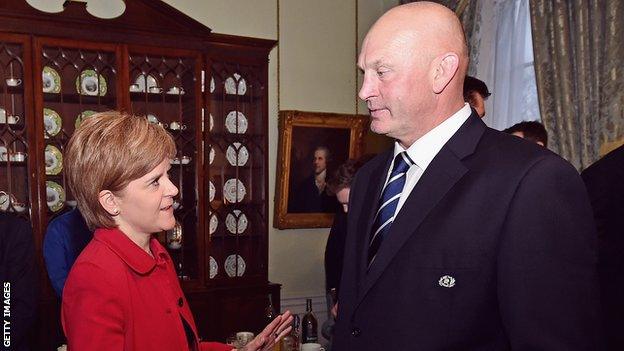
Cotter has become an increasingly popular figure in Scotland, on and off the field
"It was always going to be the deal. The SRU had made it known at the outset that they'd like a Scottish coach in the national position sooner or later and I respect entirely the decision. Would I have liked to continue? Yeah, probably would have, but that's the way it is."
Cotter, without doubt, has been good for Scotland but he says Scotland has been good for him, too.
"I understand New Zealanders so much more after living in Scotland because a lot of the influence comes from here," he explains. "I recognise it in our rural communities.
"I'm not an extroverted person - I'm introverted, I'm quiet - and I love the countryside, I love what Scotland has got to offer, whether it's the coastline, the mountains, the rivers. I enjoyed my time in Colonsay, fishing on the west coast in Plockton, stalking in Glen Shiel.
"We've got some good friends in the Borders who love their rugby and it's nice to see their passion. They talk about passion in France, but there's some real passion here for the game.
"It's been a privilege, the whole thing. I've only got fond memories. I move on. The game has existed in this country for over a hundred years and it will exist long after I've left. There's another project to move to after I finish here. We were going to go back to New Zealand but then Montpellier came up. They wanted something constructed and the communication I had with the president convinced me that there was perhaps another adventure to take on."
More than anything he wants to exit on a high. In the coming weeks he says he wants the team to deliver moments that will bond them together not just in the here and now but for decades down the road.
"They give everything, these guys," he adds. "They're striving to give people something to be proud of. The stadium is a sell-out for Ireland. So, game on..."
- Published24 January 2017
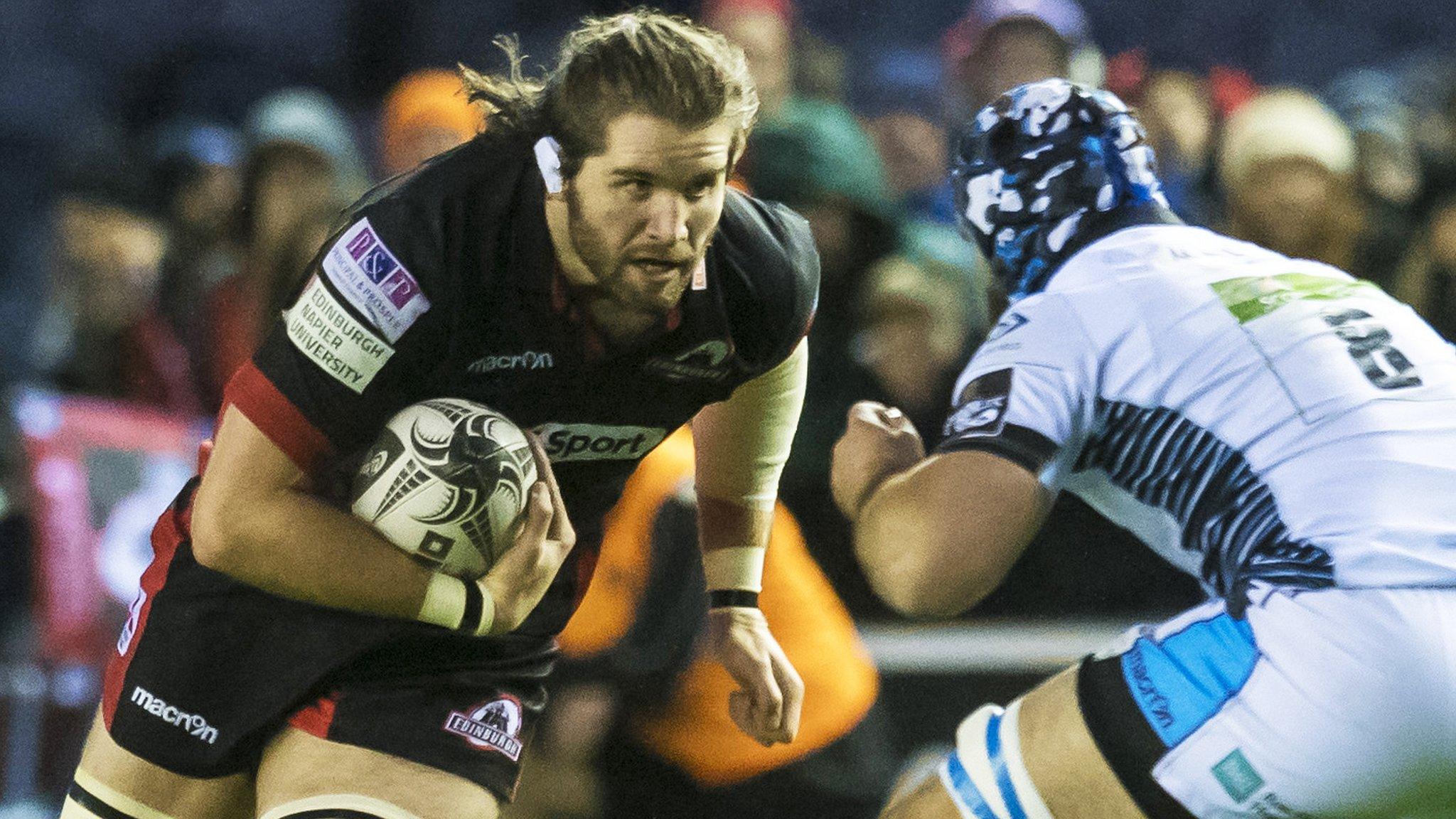
- Published23 January 2017
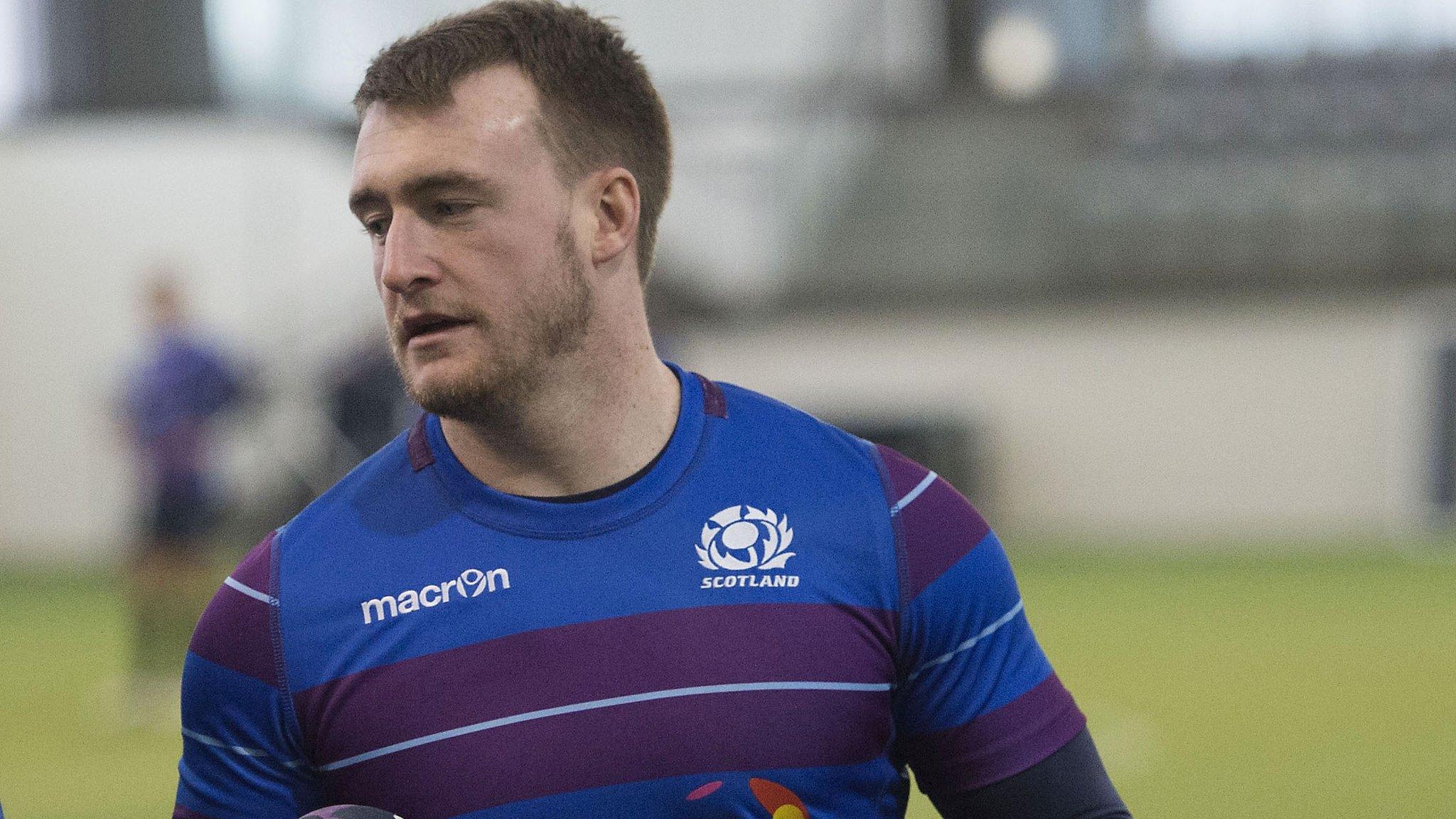
- Published20 January 2017
